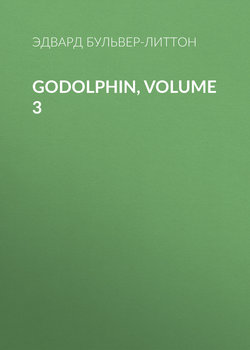Читать книгу Godolphin, Volume 3 - Эдвард Джордж Бульвер-Литтон, Эдвард Бульвер-Литтон - Страница 2
CHAPTER XXIII
ОглавлениеAN INSIGHT INTO THE REAL GRANDE MONDE;—BEING A SEARCH BEHIND THE ROSE-COLOURED CURTAINS
The time we now speak of was the most brilliant the English world, during the last half century, has known. Lord Byron was in his brief and dazzling zenith; De Stael was in London; the Peace had turned the attention of rich idlers to social enjoyment and to letters. There was an excitement, and a brilliancy, and a spirituality, about our circles, which we do not recognise now. Never had a young and ambitious woman—a beauty and a genius—a finer moment for the commencement of her power. It was Constance's early and bold resolution to push to the utmost—even to exaggeration—a power existing in all polished states, but now mostly in this,—the power of fashion! This mysterious and subtle engine she was eminently skilled to move according to her will. Her intuitive penetration into character, her tact, and her grace, were exactly the talents Fashion most demands; and they were at present devoted only to that sphere. The rudeness that she mingled, at times, with the bewitching softness and ease of manner she could command at others, increased the effect of her power. It is much to intimidate as well as to win. And her rudeness in a very little while grew popular; for it was never exercised but on those whom the world loves to see humbled. Modest merit in any rank; and even insolence, if accompanied with merit, were always safe from her satire. It was the hauteur of foolish duchesses or purse-proud roturiers that she loved, and scrupled not, to abase.
And the independence of her character was mixed with extraordinary sweetness of temper. Constance could not be in a passion: it was out of her nature. If she was stung, she could utter a sarcasm; but she could not frown or raise her voice. There was that magic in her, that she was always feminine. She did not stare young men out of countenance; she never addressed them by their Christian names; she never flirted—never coquetted: the bloom and flush of modesty was yet all virgin upon her youth. She, the founder of a new dynasty, avoided what her successors and contemporaries have deemed it necessary to incur. She was the leader of fashion; but—it is a miraculous union—she was respectable!
At this period, some new dances were brought into England. These dances found much favour in the eves of several great ladies young enough to dance them. They met at each other's houses in the morning to practise the steps. Among these was Lady Erpingham; her house became the favourite rendezvous.
The young Marquis of Dartington was one of the little knot. Celebrated for his great fortune, his personal beauty, and his general success, he resolved to fall in love with Lady Erpingham. He devoted himself exclusively to her; he joined her in the morning in her rides—in the evening in her gaieties. He had fallen in love with her?—yes!—did he love her?—not the least. But he was excessively idle!—what else could he do?
Constance early saw the attentions and designs of Lord Dartington. There is one difficulty in repressing advances in great society—one so easily becomes ridiculous by being a prude. But Constance dismissed Lord Dartington with great dexterity. This was the occasion:—
One of the apartments in Erpingham House communicated with a conservatory. In this conservatory Constance was alone one morning, when Lord Dartington, who had entered the house with Lord Erpingham, joined her. He was not a man who could ever become sentimental; he was rather the gay lover—rather the Don Gaolor than the Amadis; but he was a little abashed before Constance. He trusted, however, to his fine eyes and his good complexion—plucked up courage; and, picking a flower from the same plant Constance was tending, said,—
"I believe there is a custom in some part of the world to express love by flowers. May I, dear Lady Erpingham, trust to this flower to express what I dare not utter?"
Constance did not blush, nor look confused, as Lord Dartington had hoped and expected. One who had been loved by Godolphin was not likely to feel much agitation at the gallantry of Lord Dartington; but she looked gravely in his face, paused a little before she answered, and then said, with a smile that abashed the suitor more than severity could possibly have done:—
"My dear Lord Dartington, do not let us mistake each other. I live in the world like other women, but I am not altogether like them. Not another word of gallantry to me alone, as you value my friendship. In a crowded room pay me as many compliments as you like. It will flatter my vanity to have you in my train. And now, just do me the favour to take these scissors and cut the dead leaves off that plant."
Lord Dartington, to use a common phrase, "hummed and hawed." He looked, too, a little angry. An artful and shrewd politician, it was not Constance's wish to cool the devotion, though she might the attachment, of a single member of her husband's party. With a kind look—but a look so superior, so queen-like, so free from the petty and coquettish condescension of the sex, that the gay lord wondered from that hour how he could ever have dreamed of Constance as of certain other ladies—she stretched her hand to him.
"We are friends, Lord Dartington?—and now we know each other, we shall be so always."
Lord Dartington bowed confusedly over the beautiful hand he touched; and Constance, walking into the drawing-room, sent for Lord Erpingham on business—Dartington took his leave.
